
Banja Luka: The Green Oasis of Bosnia and Herzegovina
Banja Luka, the second largest city in Bosnia and Herzegovina, is a charming destination nestled along the Vrbas River. Known for its tree-lined avenues, lush parks, and vibrant culture, Banja Luka offers a refreshing escape for travelers seeking both relaxation and adventure. The city's rich history is reflected in its mix of Austro-Hungarian and Ottoman architecture, with landmarks such as the Kastel Fortress and the Ferhadija Mosque providing fascinating glimpses into the past. Nature lovers will find Banja Luka to be a paradise. The city is surrounded by beautiful landscapes, including the Vrbas River Canyon, where visitors can enjoy activities like rafting, hiking, and rock climbing. The thermal springs in the area offer a unique way to unwind, with the Banja Luka Spa being a popular spot for rejuvenation. The city's vibrant culture is highlighted by its lively cafes, bustling markets, and annual events such as the Banja Luka Summer Festival. Local cuisine is a delightful experience, with hearty dishes like ćevapi and burek tempting the taste buds. Warm and welcoming, the people of Banja Luka add to the city's charm, making it a memorable destination for any traveler.
Local tips in Banja Luka
- Visit Kastel Fortress early in the morning to avoid crowds and enjoy the serene atmosphere.
- For the best local cuisine, try the small, family-owned restaurants where traditional recipes are passed down through generations.
- If you plan to go rafting on the Vrbas River, book your trip in advance, especially during the summer months.
- Take a stroll through the Gospodska Street in the city center for shopping and people-watching.
- Don't miss the chance to soak in the thermal springs; it's a perfect way to relax after a day of exploring.
Banja Luka: The Green Oasis of Bosnia and Herzegovina
Banja Luka, the second largest city in Bosnia and Herzegovina, is a charming destination nestled along the Vrbas River. Known for its tree-lined avenues, lush parks, and vibrant culture, Banja Luka offers a refreshing escape for travelers seeking both relaxation and adventure. The city's rich history is reflected in its mix of Austro-Hungarian and Ottoman architecture, with landmarks such as the Kastel Fortress and the Ferhadija Mosque providing fascinating glimpses into the past. Nature lovers will find Banja Luka to be a paradise. The city is surrounded by beautiful landscapes, including the Vrbas River Canyon, where visitors can enjoy activities like rafting, hiking, and rock climbing. The thermal springs in the area offer a unique way to unwind, with the Banja Luka Spa being a popular spot for rejuvenation. The city's vibrant culture is highlighted by its lively cafes, bustling markets, and annual events such as the Banja Luka Summer Festival. Local cuisine is a delightful experience, with hearty dishes like ćevapi and burek tempting the taste buds. Warm and welcoming, the people of Banja Luka add to the city's charm, making it a memorable destination for any traveler.
When is the best time to go to Banja Luka?
Iconic landmarks you can’t miss
Boska
Explore Boska Shopping Mall in Banja Luka for a fantastic blend of shopping, dining, and entertainment, showcasing the best of local culture and products.
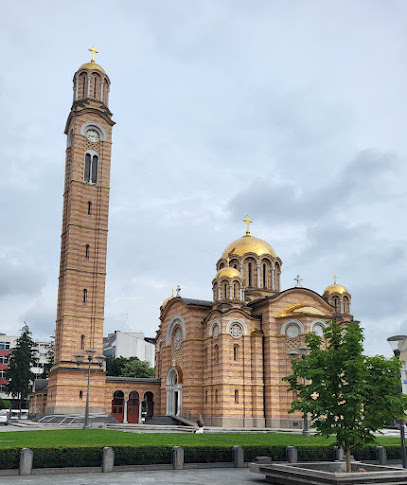
Stara Ada
Experience the flavors of Bosnia at Stara Ada, a riverside restaurant offering delicious cuisine and cozy holiday apartments in Banja Luka.
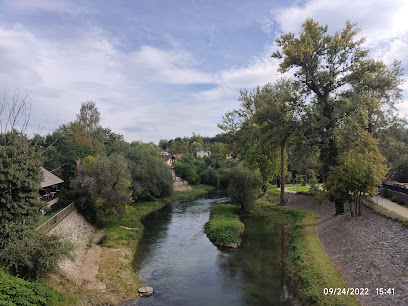
Kastel Fortress
Discover the rich history and stunning views at Kastel Fortress, a must-visit historical site in Banja Luka, perfect for every traveler.
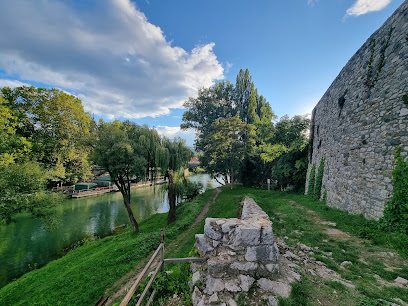
Park Mladen Stojanović
Explore the lush greenery and vibrant culture of Park Mladen Stojanović, an urban oasis in Banja Luka perfect for relaxation and exploration.
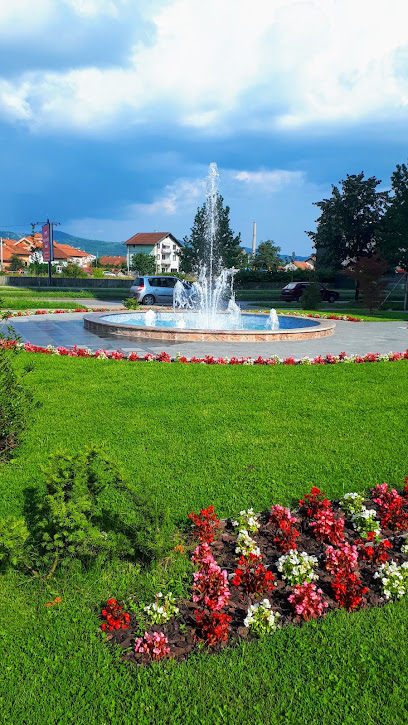
Kazamat
Experience the authentic flavors of Eastern Europe at Kazamat, Banja Luka's beloved restaurant offering traditional dishes and warm hospitality.
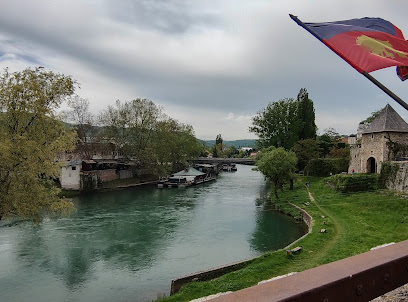
Obelix
Indulge in the rich flavors of barbecue at Obelix, Banja Luka's must-visit restaurant for grilled delights and hearty breakfasts.
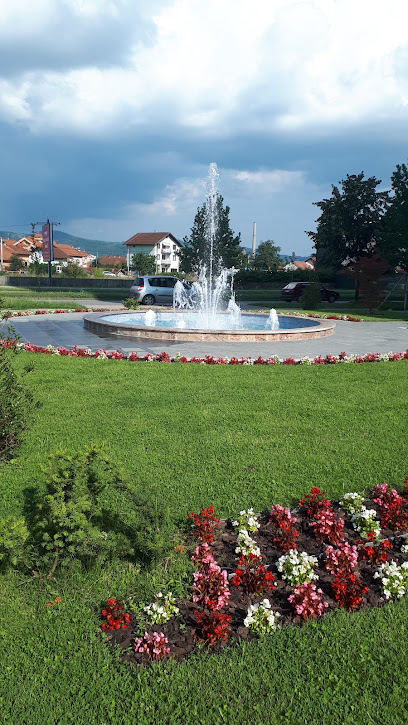
Banjalučki splav
Experience the flavors of Banja Luka at Banjalučki Splav, a riverside restaurant blending culinary excellence with a lively ambiance.
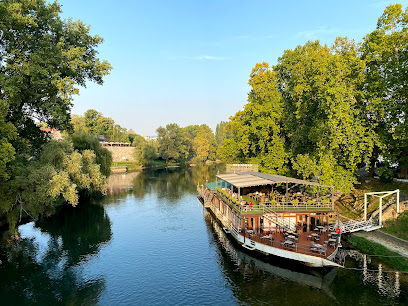
Gradska Tržnica
Explore Gradska Tržnica, the vibrant market of Banja Luka, where fresh produce and local delicacies come together in a lively cultural experience.
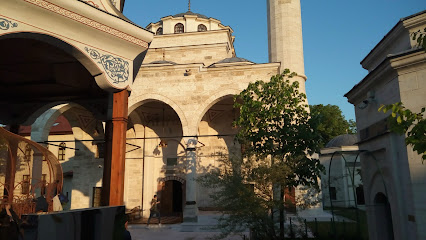
Christ the Savior Orthodox Cathedral
Discover the architectural beauty and spiritual serenity of Christ the Savior Orthodox Cathedral in Banja Luka, a must-visit landmark for travelers.
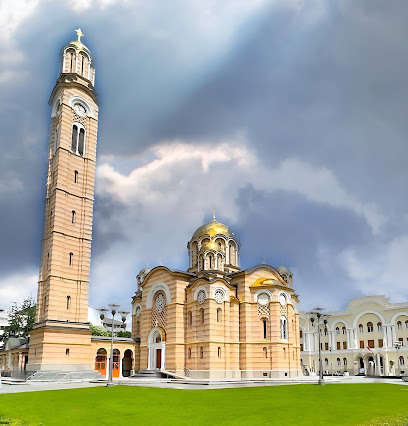
Ferhadija Mosque
Discover the beauty and history of Ferhadija Mosque, a stunning example of Ottoman architecture nestled in Banja Luka, Bosnia and Herzegovina.
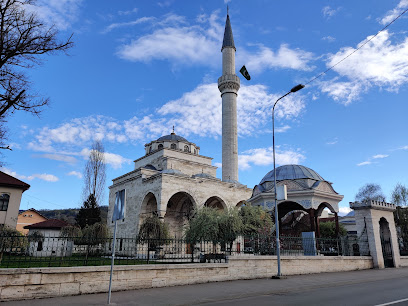
Mala Stanica
Discover the vibrant culinary scene of Banja Luka at Mala Stanica, where local flavors meet international cuisine in a lively atmosphere.
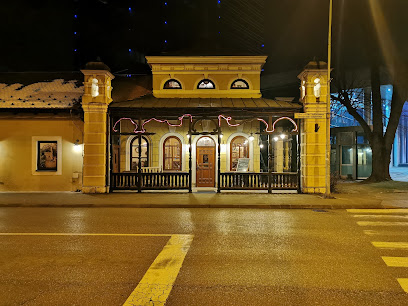
Aquana
Experience the ultimate water adventure at Aquana, Banja Luka's leading water park with thrilling slides and relaxing pools for all ages.
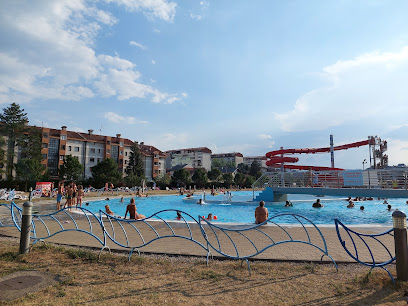
Pod lipom
Discover the authentic taste of Bosnia at Pod lipom, Banja Luka's premier barbecue restaurant, offering flavorful grilled dishes in a welcoming setting.
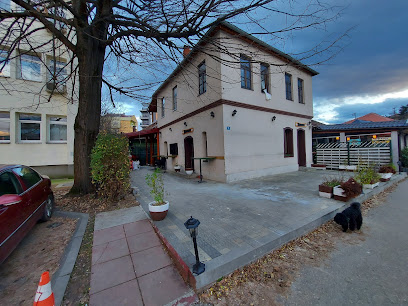
Gatsby
Experience the vibrant nightlife at Gatsby, Banja Luka's chic bar, offering exquisite drinks and a stylish ambiance for all visitors.
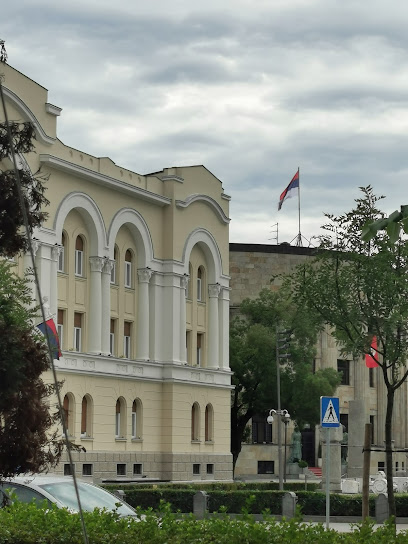
Banski Dvor
Discover the rich cultural heritage of Banja Luka at Banski Dvor, a stunning center for art, history, and local creativity.
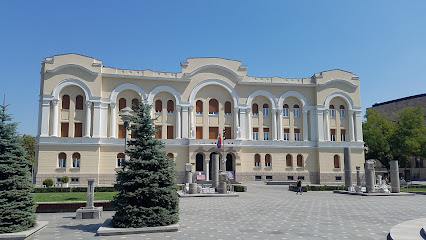
Unmissable attractions to see
Pliva Waterfall
Experience the breathtaking beauty of Pliva Waterfall in Jajce, a serene natural wonder surrounded by rich history and stunning landscapes.
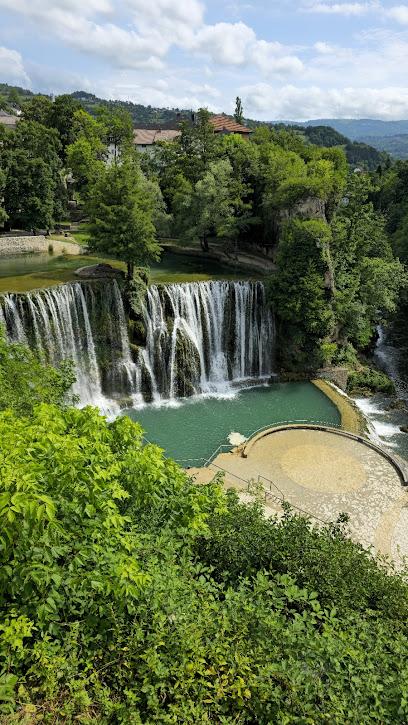
Mlinčići
Experience the enchanting beauty and rich history of Mlinčići, a captivating water mill in Jajce, Bosnia and Herzegovina.
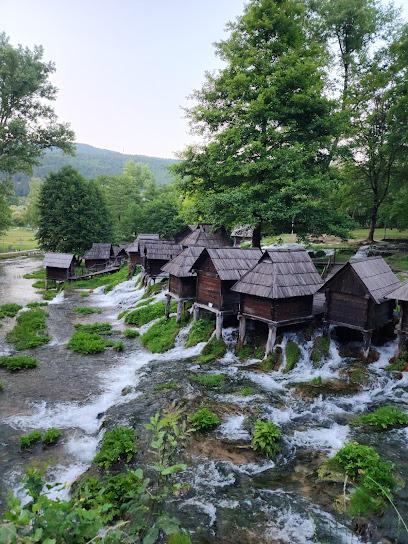
Kastel Fortress
Explore the historical Kastel Fortress in Banja Luka, a majestic site with stunning views and rich cultural events, perfect for history lovers and tourists alike.
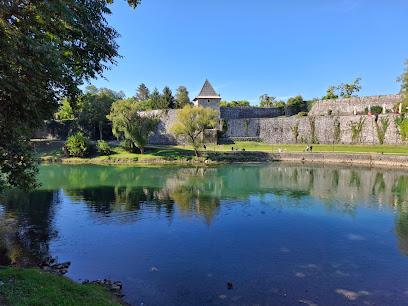
Kozara National Park
Explore the natural beauty and rich history of Kozara National Park, a stunning destination for outdoor adventures and wildlife spotting in Bosnia and Herzegovina.
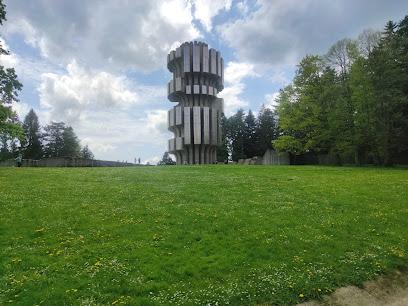
Christ the Savior Orthodox Cathedral
Experience the beauty and spirituality of the Christ the Savior Orthodox Cathedral, a must-visit cultural landmark in Banja Luka, Bosnia and Herzegovina.
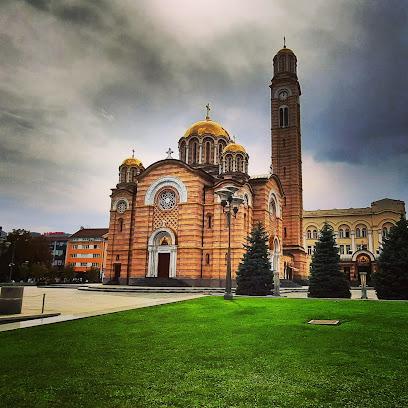
Ferhadija Mosque
Explore the historical and architectural beauty of Ferhadija Mosque, a symbol of resilience in Banja Luka's cultural landscape.
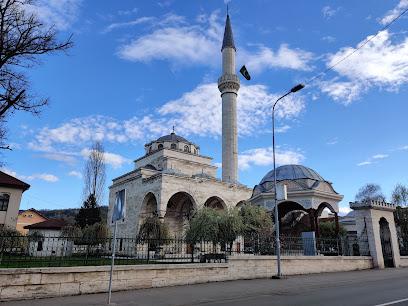
Aquana
Experience the ultimate aquatic adventure at Aquana in Banja Luka, where fun meets relaxation in an exciting water park atmosphere.
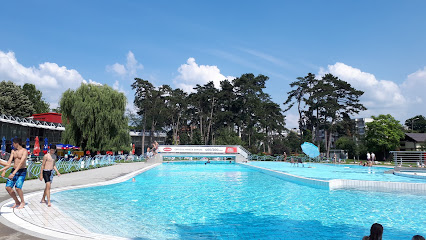
Jajce Fortress
Discover the majestic Jajce Fortress, a historical marvel in Bosnia and Herzegovina, offering stunning views and rich cultural heritage for all travelers.
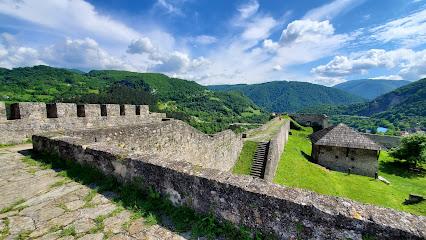
Museum of the Republika Srpska
Discover the extraordinary history and culture of Banja Luka at the Museum of the Republika Srpska, a treasure trove of artifacts and exhibitions.
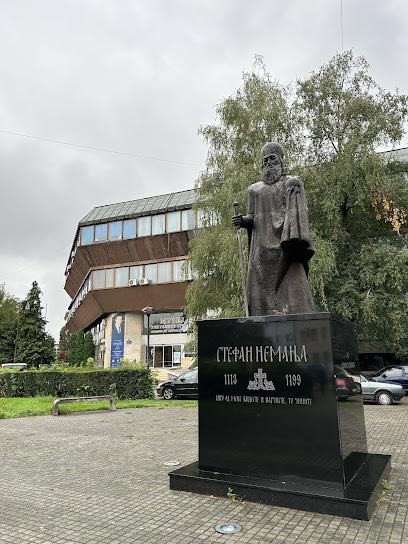
Museum of Contemporary Art of the Republic of Srpska
Explore contemporary artistic expressions at the Museum of Contemporary Art of the Republic of Srpska, a cultural highlight in Banja Luka, Bosnia and Herzegovina.
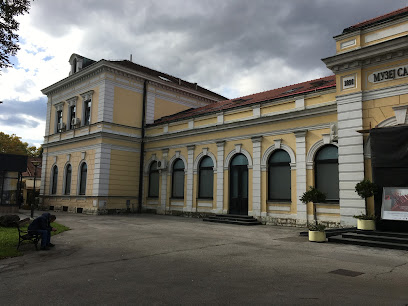
Museum of the Republika Srpska
Discover the rich history and culture of the Republika Srpska at the Museum of the Republika Srpska, a captivating attraction in Banja Luka.
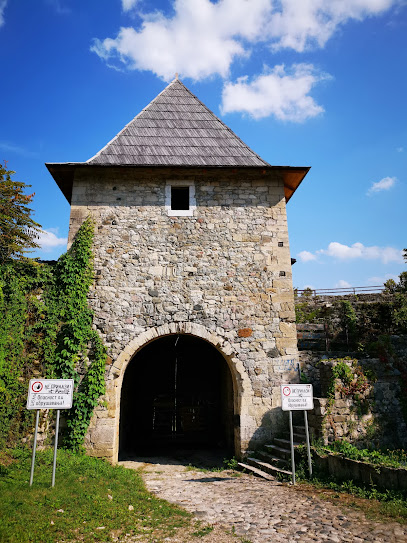
Museum of the 2nd AVNOJ session
Explore the Museum of the 2nd AVNOJ Session in Jajce, a captivating site showcasing Bosnia's rich heritage and pivotal historical events.
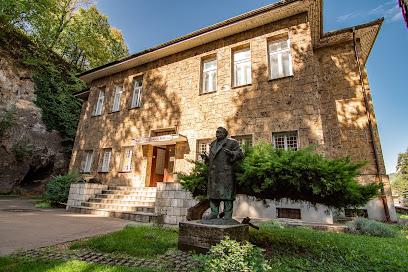
Banja Luka Recreation Area
Explore Banja Luka Recreation Area: A serene retreat for nature lovers and adventure seekers in the heart of Bosnia.
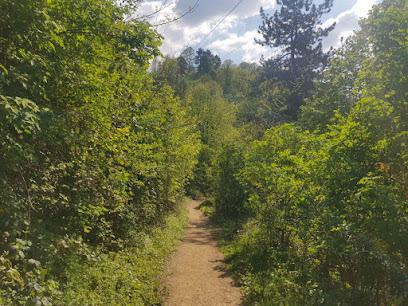
Katakombe - Jajce
Uncover the rich history of Jajce at Katakombe, where ancient chambers and sacred altars reveal the secrets of the past.
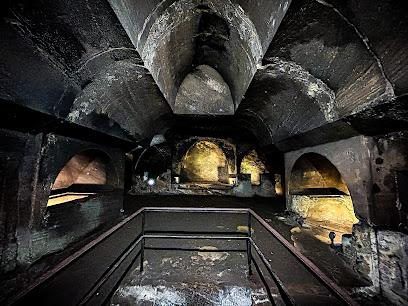
Pliva Lake Viewpoint
Discover the breathtaking views and serene beauty of Pliva Lake Viewpoint in Bosnia and Herzegovina, a perfect escape for nature enthusiasts.
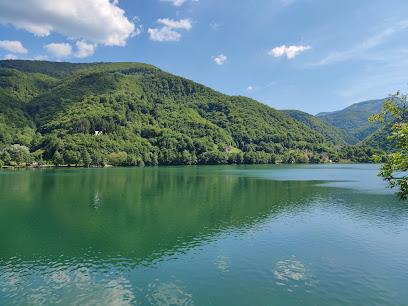
Essential places to dine
Stara Ada
Discover Stara Ada in Banja Luka: A charming restaurant offering authentic Bosnian cuisine amidst stunning natural beauty.
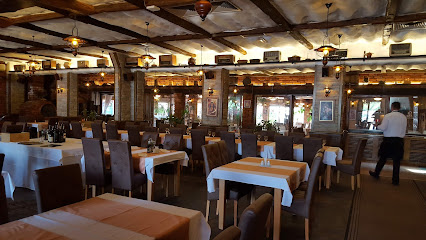
Kazamat
Experience authentic Eastern European cuisine at Kazamat in Banja Luka—where tradition meets flavor in every dish.
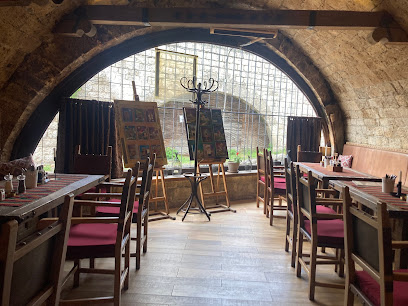
Kod Brke
Discover authentic Bosnian cuisine at Kod Brke in Banja Luka – a culinary gem offering traditional dishes in a cozy atmosphere.
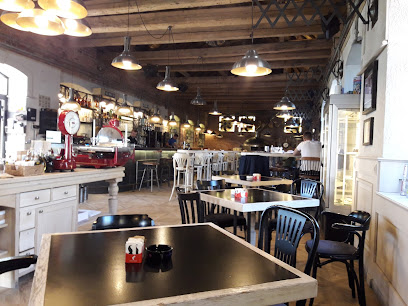
Marcello
Discover Marcello in Banja Luka – where delicious pizzas meet cozy café vibes amidst beautiful city surroundings.
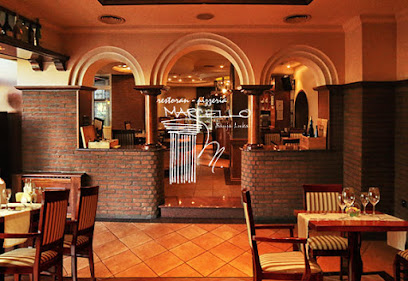
Slap
Discover Slap in Banja Luka - where traditional Bosnian flavors meet modern culinary artistry in an inviting atmosphere.
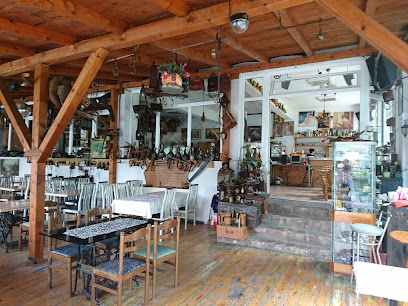
Banjalučki splav
Experience authentic Bosnian cuisine with stunning riverside views at Banjalučki splav in Banja Luka.
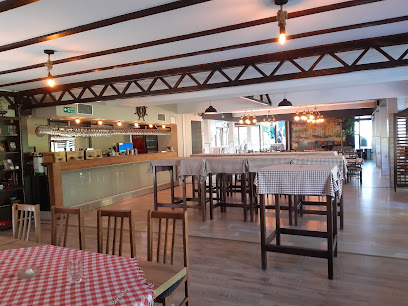
Bizarre Diverse Bar
Discover the vibrant atmosphere and diverse menu at Banja Luka's most unique dining destination - Bizarre Diverse Bar.
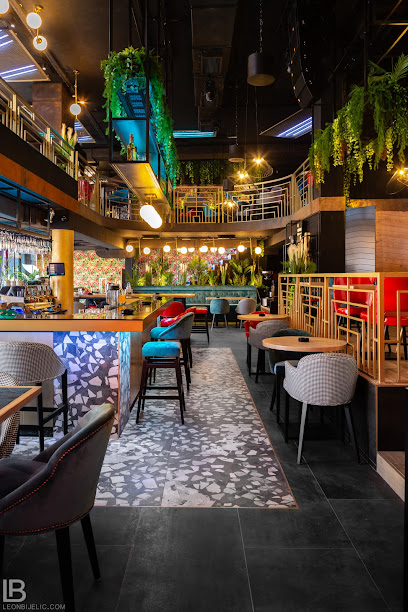
Bona Fides
Discover Bona Fides in Banja Luka - where traditional Bosnian flavors meet modern culinary artistry in a charming garden setting.
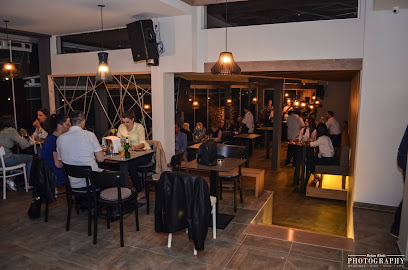
Citadela
Experience authentic Bosnian flavors at Citadela Brewpub in Banja Luka - where local craft beer meets delicious cuisine.
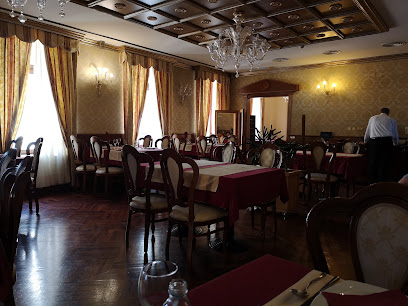
Agape
Discover Agape in Banja Luka - where tradition meets innovation in every delicious bite.
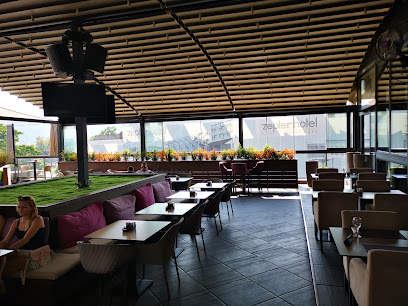
Vrbas
Experience authentic Bosnian cuisine at Vrbas - where tradition meets flavor in Banja Luka's vibrant dining scene.
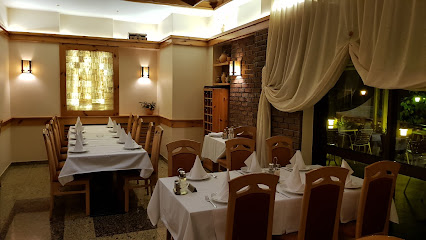
Jova Bar
Experience authentic Bosnian flavors at Jova Bar in Banja Luka - a must-visit restaurant for food lovers.
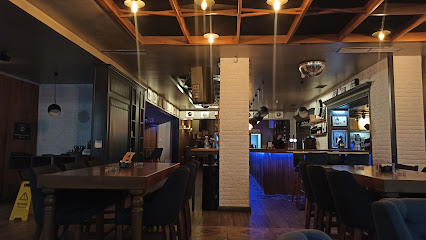
Orhideja
Discover Orhideja in Banja Luka: A culinary haven offering traditional Bosnian dishes and international flavors in a cozy atmosphere.
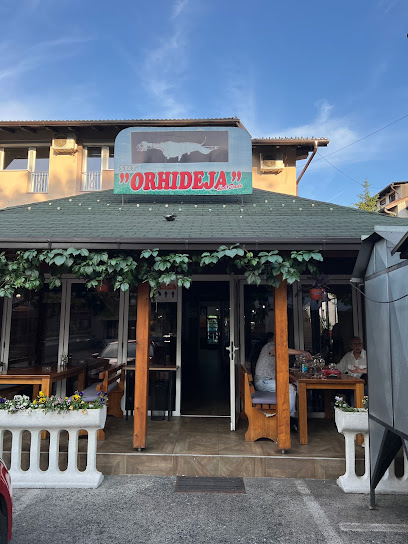
Lovački restoran
Discover authentic Bosnian flavors at Lovački Restoran in Banja Luka, where tradition meets modern culinary artistry.
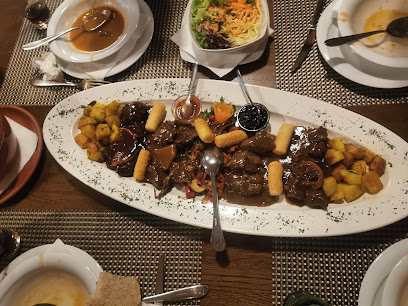
Pod lipom
Experience authentic Bosnian barbecue at Pod Lipom, where tradition meets flavor in the heart of Banja Luka.
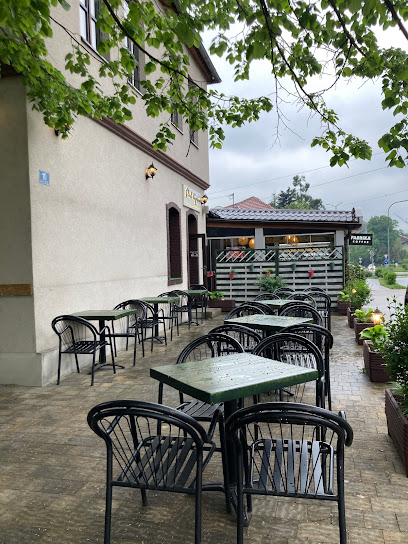
Markets, malls and hidden boutiques
Delta Planet
Explore Delta Planet in Banja Luka for a unique shopping experience featuring international brands, local eateries, and entertainment options.
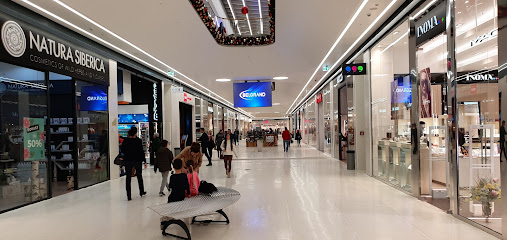
Boska
Discover the charm of Boska Shopping Mall in Banja Luka, where shopping meets local culture in a vibrant atmosphere.
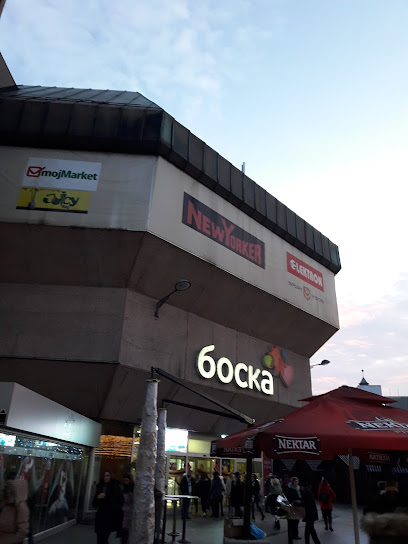
Emporium
Explore TC Emporium, Banja Luka's vibrant shopping mall featuring diverse stores, delicious dining, and entertainment for a perfect day out.
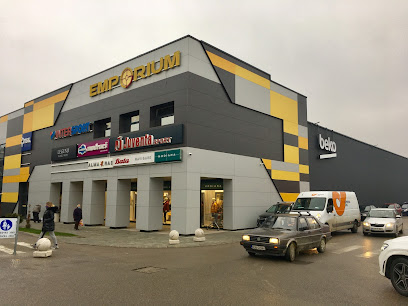
Robna kuća Kastel
Explore Robna kuća Kastel, a premier department store in Banja Luka, offering a vibrant shopping experience with local and international goods.
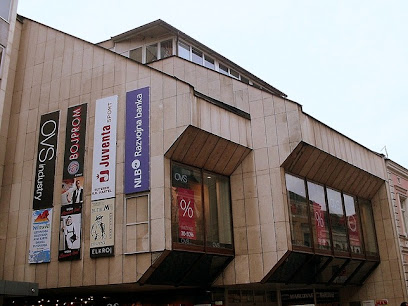
Buzz
Explore Buzz, Banja Luka's premier shoe store, offering a vast selection of footwear for every style and occasion. Perfect for trendy shoppers!
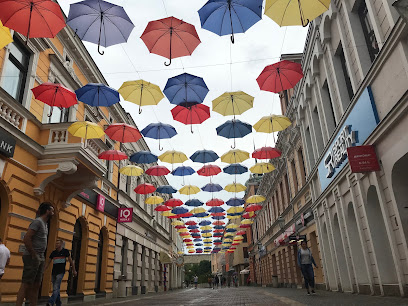
Đuro
Explore Đuro in Banja Luka - a clothing store brimming with fashion and local flair, perfect for every style and budget.
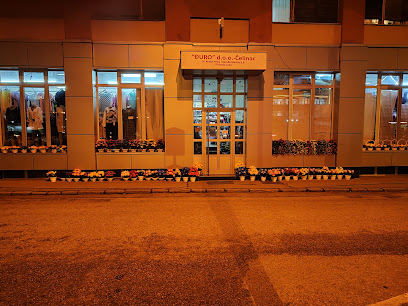
NEW YORKER
Explore NEW YORKER in Banja Luka for trendy clothing and accessories that capture the essence of modern fashion, perfect for every style and occasion.
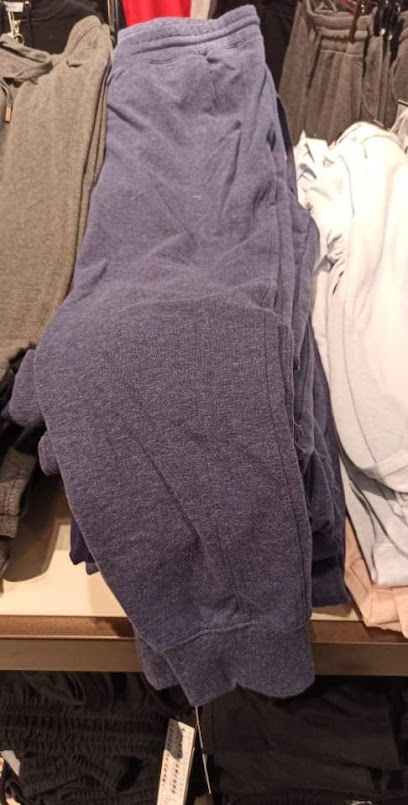
Gatarić Multi Shop
Discover the best office and school supplies at Gatarić Multi Shop in Banja Luka, where quality meets affordability for all your needs.
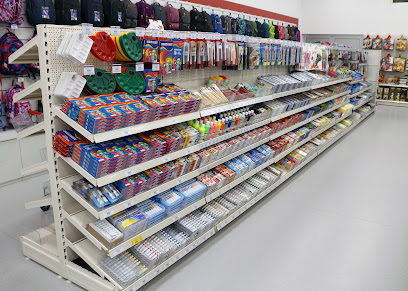
Family Second Hand - Banjaluka, Aleja
Explore unique second-hand fashion finds at Family Second Hand in Banja Luka, where sustainable shopping meets eclectic style.
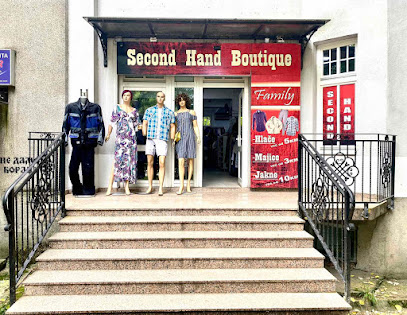
Tropik Gifts and Games
Explore Tropik Gifts and Games in Banja Luka – a vibrant gift shop and board game club perfect for families and fun seekers.
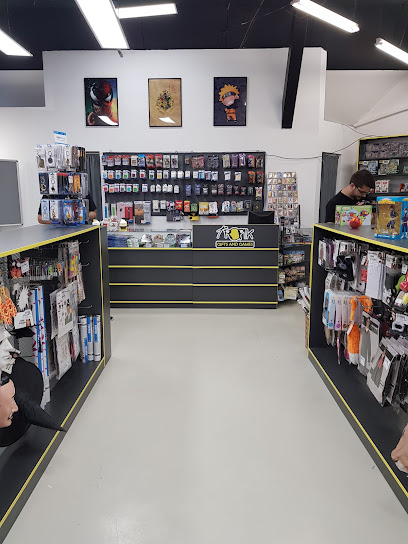
Urban Shop
Explore Urban Shop in Banja Luka for trendy clothing and shoes, embodying the local fashion scene while you enjoy your travels.
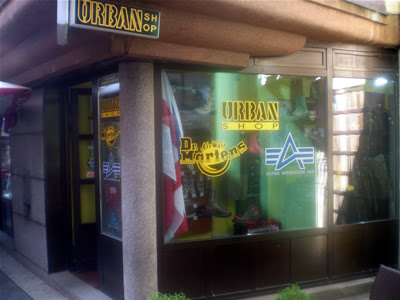
P....S....fashion Banja Luka
Discover contemporary style at P.S. Fashion in Banja Luka, where trendy clothing meets local flair in a welcoming atmosphere.
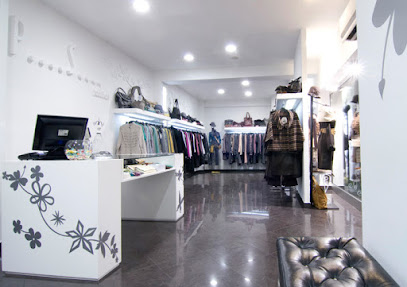
Tekne koncept
Explore Tekne Koncept in Banja Luka for unique gifts and handcrafted treasures that capture the essence of local culture.
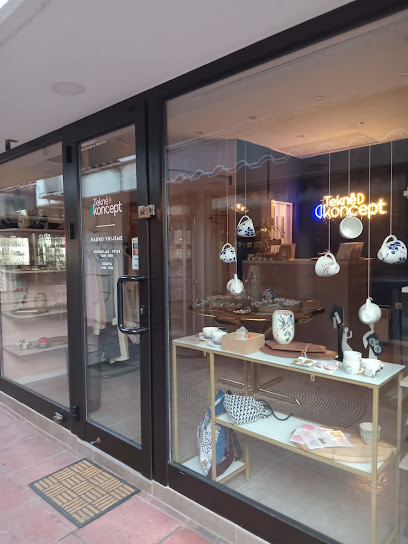
Bershka
Explore the stylish offerings at Bershka, a trendy clothing store in Banja Luka, featuring fashionable apparel and accessories for men and women.
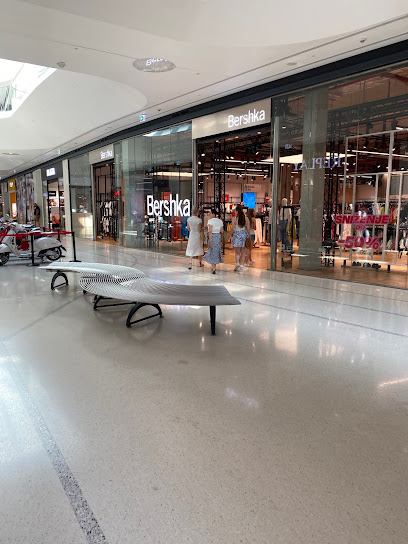
United Colors of Benetton Banja Luka
Explore contemporary fashion at United Colors of Benetton Banja Luka, where vibrant styles meet quality craftsmanship in a welcoming atmosphere.
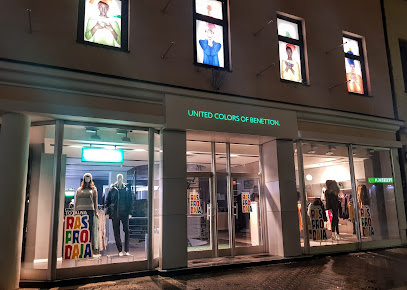
Essential bars & hidden hideouts
Mac Tire
Discover the lively atmosphere of Mac Tire, Banja Luka's premier Irish pub, offering a unique blend of local flavors and traditional Irish hospitality.
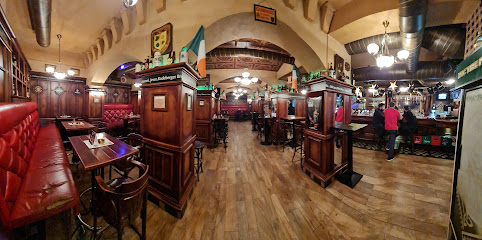
Debela Berta
Experience the vibrant nightlife of Banja Luka at Debela Berta, a lively pub offering local drinks, delicious food, and unforgettable live music.
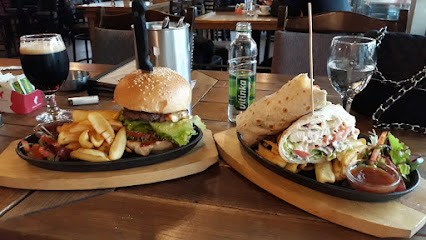
Gatsby
Discover Gatsby in Banja Luka - a trendy bar with vibrant cocktails and a lively atmosphere perfect for nightlife enthusiasts.
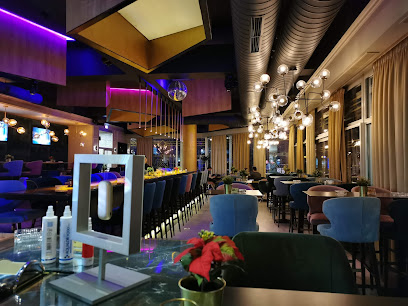
Eklektik
Explore Banja Luka's vibrant nightlife at Eklektik, a lively bar offering a diverse drink selection and a welcoming atmosphere for all.
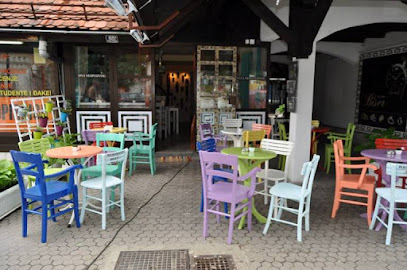
Xlive Sport Pub
Discover the ultimate sports bar experience at Xlive Sport Pub in Banja Luka, where thrilling games meet delicious food and vibrant atmosphere.
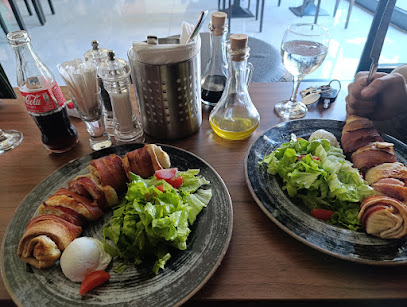
Candela
Experience the vibrant nightlife of Banja Luka at Candela, a bar that offers a cozy atmosphere and a delightful selection of drinks.
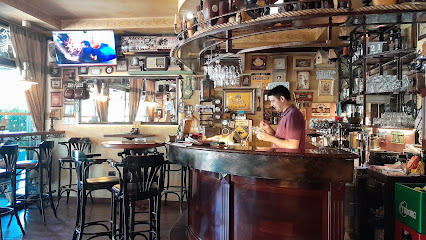
Caffe bar Kings
Discover the vibrant atmosphere of Caffe Bar Kings in Banja Luka, where great drinks and lively ambiance create unforgettable experiences.
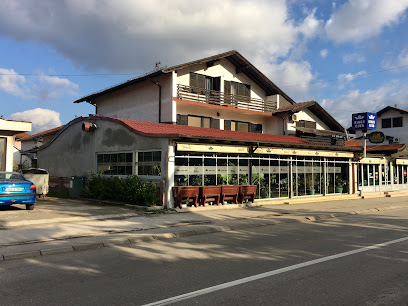
Alter Ego
Alter Ego in Banja Luka: Experience an exquisite selection of wines in a cozy atmosphere, perfect for every wine lover and casual drinker.
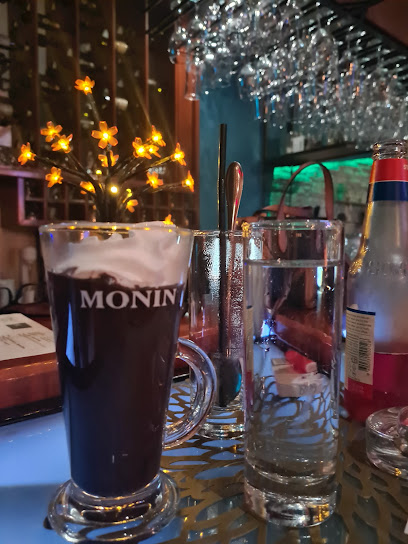
Pallet
Experience the vibrant nightlife of Banja Luka at Pallet, a lively bar offering great drinks and a friendly atmosphere.
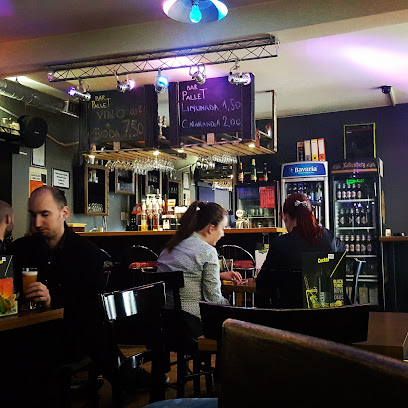
Living Room
Experience the vibrant local culture at The Living Room, a cozy bar in Banja Luka known for its extensive drink menu and inviting atmosphere.
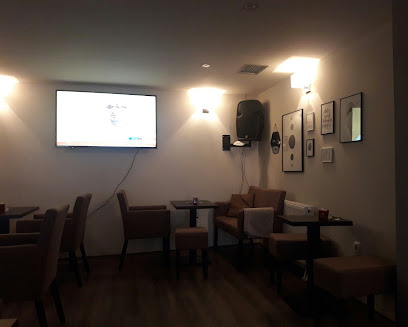
STEPA BAR
Experience the vibrant nightlife of Banja Luka at Stepa Bar, where modern ambiance meets local culture for an unforgettable evening.
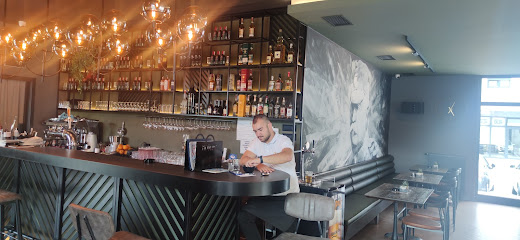
BOHO
Discover the lively atmosphere of BOHO, the must-visit bar in Banja Luka for unique drinks and a vibrant social scene.
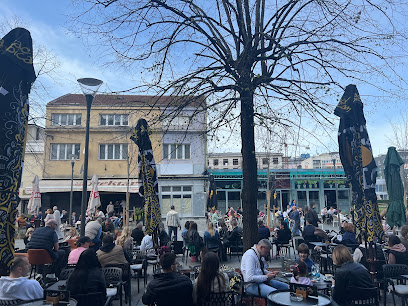
Dublin Pub
Discover Dublin Pub in Banja Luka, a local favorite for delicious drinks and lively entertainment in a cozy, welcoming atmosphere.
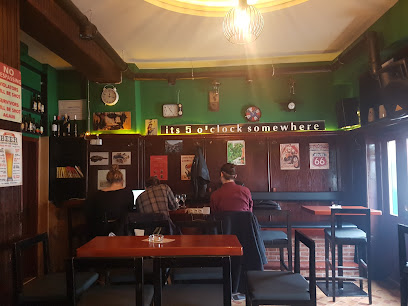
Hemingway
Discover the vibrant atmosphere and delightful drinks at Hemingway Bar in Banja Luka, your perfect escape in the heart of the city.
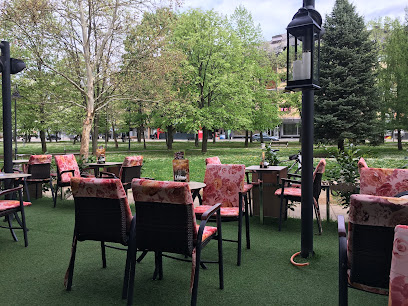
Local Phrases
-
- HelloZdravo
[Zdrah-voh] - GoodbyeDoviđenja
[Doh-vee-jen-ya] - YesDa
[Dah] - NoNe
[Neh] - Please/You're welcomeMolim te
[Moh-leem teh] - Thank youHvala
[Hvah-lah] - Excuse me/SorryIzvini
[Eez-vee-nee] - How are you?Kako si?
[Kah-koh see] - Fine. And you?Dobro. A ti?
[Doh-bro. Ah tee] - Do you speak English?Govoriš li engleski?
[Goh-voh-reesh lee ehn-gleh-skee] - I don't understandNe razumijem
[Neh rah-zoo-mee-yem]
- HelloZdravo
-
- I'd like to see the menu, pleaseMogu li vidjeti meni, molim?
[Moh-goo lee vee-dyeh-tee meh-nee, moh-leem] - I don't eat meatNe jedem meso
[Neh yeh-dem meh-so] - Cheers!Živjeli!
[Zhee-ve-lee] - I would like to pay, pleaseŽelim platiti, molim
[Zheh-leem plah-tee-tee, moh-leem]
- I'd like to see the menu, pleaseMogu li vidjeti meni, molim?
-
- Help!Pomoć!
[Poh-mohtch] - Go away!Idi odavde!
[Ee-dee oh-dahv-deh] - Call the Police!Pozovi policiju!
[Poh-zoh-vee poh-leet-see-yoo] - Call a doctor!Pozovi doktora!
[Poh-zoh-vee dohk-toh-rah] - I'm lostIzgubio/la sam se
[Eez-goo-bee-yo/lah sahm seh] - I'm illBolestan/na sam
[Boh-leh-stahn/nah sahm]
- Help!Pomoć!
-
- I'd like to buy...Želim kupiti...
[Zheh-leem koo-pee-tee] - I'm just lookingSamo gledam
[Sah-moh gleh-dam] - How much is it?Koliko košta?
[Koh-lee-koh koh-shta] - That's too expensiveTo je previše skupo
[Toh yeh preh-vee-sheh skoo-po] - Can you lower the price?Možete li spustiti cijenu?
[Moh-zheh-teh lee spoo-stee-tee tsee-yeh-noo]
- I'd like to buy...Želim kupiti...
-
- What time is it?Koliko je sati?
[Koh-lee-koh yeh sah-tee] - It's one o'clockJedan je sat
[Yeh-dahn yeh saht] - Half past (10)Pola (deset)
[Poh-lah (deh-seht)] - MorningJutro
[Yoo-troh] - AfternoonPopodne
[Poh-pohd-neh] - EveningVeče
[Veh-cheh] - YesterdayJuče
[Yoo-cheh] - TodayDanas
[Dah-nahs] - TomorrowSutra
[Soo-trah] - 1Jedan
[Yeh-dahn] - 2Dva
[Dvah] - 3Tri
[Tree] - 4Četiri
[Cheh-tee-ree] - 5Pet
[Peh-t] - 6Šest
[Shehst] - 7Sedam
[Seh-dahm] - 8Osam
[Oh-sahm] - 9Devet
[Deh-veht] - 10Deset
[Deh-seht]
- What time is it?Koliko je sati?
-
- Where's a/the...?Gdje je...
[Gdyeh yeh] - What's the address?Koja je adresa?
[Koh-yah yeh ah-deh-sah] - Can you show me (on the map)?Možete li mi pokazati (na mapi)?
[Moh-zheh-teh lee mee poh-kah-zah-tee nah mah-pee] - When's the next (bus)?Kada je sljedeći (autobus)?
[Kah-dah yeh sleh-deh-chee ow-toh-boos] - A ticket (to ....)Jednu kartu (do ...)
[Yeh-dnoo kahr-too doh]
- Where's a/the...?Gdje je...
History of Banja Luka
-
Banja Luka, situated on the banks of the Vrbas River, dates back to the Roman era. Archaeological evidence suggests that the area was inhabited as early as the Neolithic period. The Romans established a settlement here, known as Castra, which served as a military fortress. Remnants of Roman baths and other structures can still be traced, highlighting the city's ancient origins.
-
During the medieval period, Banja Luka became a significant part of the Bosnian Kingdom. The first written mention of the city was in 1494, during the reign of the Ottoman Empire. The city's strategic location made it a focal point for trade and military activities. Throughout this period, Banja Luka saw the construction of numerous fortifications and religious buildings.
-
Under Ottoman rule, Banja Luka flourished as a cultural and administrative center. The Ottomans constructed many mosques, baths, and bridges, leaving a lasting architectural legacy. One of the most notable structures from this period is the Ferhat Pasha Mosque, built in 1579. The city also became known for its vibrant markets and diverse population.
-
In 1878, Banja Luka came under Austro-Hungarian control. This era brought significant modernization to the city, including the introduction of Western-style education, infrastructure development, and industrialization. The railway connection established during this period played a crucial role in the city's economic growth. Architectural influences from this era are still visible in many of the city's buildings.
-
Banja Luka experienced significant upheaval during both World Wars. After World War II, it became part of the Socialist Federal Republic of Yugoslavia. The city underwent reconstruction and development, emerging as an important industrial and cultural hub. The 1969 earthquake was a turning point, leading to extensive rebuilding efforts that shaped the modern landscape of Banja Luka.
-
The Bosnian War (1992-1995) had a profound impact on Banja Luka. Although the city itself was not a major battleground, it witnessed significant demographic changes and ethnic tensions. The war led to the destruction of several historical and cultural landmarks, including the Ferhat Pasha Mosque, which was later rebuilt. The post-war period has seen efforts to restore and preserve the city's cultural heritage.
-
Today, Banja Luka is the administrative center of the Republika Srpska entity within Bosnia and Herzegovina. It is known for its vibrant cultural scene, including festivals, museums, and theaters. The city's diverse architectural heritage, ranging from Ottoman to Austro-Hungarian influences, attracts many visitors. Banja Luka continues to evolve, balancing its rich history with modern development.
Banja Luka Essentials
-
Banja Luka is accessible via Banja Luka International Airport (BNX), located about 23 kilometers from the city center. The airport services several European destinations with direct flights. Alternatively, you can fly to Sarajevo International Airport (SJJ) and take a bus or train to Banja Luka, which is approximately 240 kilometers away. The city is also well-connected by bus and train from other major cities in Bosnia and Herzegovina and neighboring countries.
-
Public transportation in Banja Luka includes buses and taxis. The bus network is extensive and affordable, making it easy to navigate the city. Taxis are also readily available and relatively inexpensive. For those looking to explore the surrounding areas, renting a car is a convenient option. Biking is another popular mode of transportation, with several bike rental services available.
-
The official currency in Bosnia and Herzegovina is the Convertible Mark (BAM). Credit cards are widely accepted in hotels, restaurants, and larger shops. However, it is advisable to carry some cash, especially when visiting smaller establishments or rural areas. ATMs are abundant throughout Banja Luka, making it easy to withdraw local currency.
-
Banja Luka is generally a safe city for tourists. However, it is always wise to take standard precautions. Avoid walking alone at night in less populated areas and be mindful of your belongings in crowded places. Some areas like Borik and Starčevica have higher crime rates, but crimes targeting tourists are not common. Stay vigilant and use common sense to ensure a safe visit.
-
In case of an emergency, dial 112 for immediate assistance. Banja Luka has several hospitals and clinics that can provide medical care. It is advisable to have travel insurance that covers medical emergencies. Pharmacies are readily available for minor health issues and over-the-counter medications.
-
Fashion: Do dress modestly, especially when visiting religious sites. Avoid overly revealing clothing. Religion: Do respect local customs and traditions. Be mindful of dress codes when entering mosques and churches. Public Transport: Do offer your seat to elderly passengers. Don’t eat or drink on public transport. Greetings: Do greet people with a friendly handshake. A simple 'Dobar dan' (Good day) goes a long way. Eating & Drinking: Do try local dishes and accept food offerings graciously. Don’t refuse hospitality, as it is considered impolite.
-
To experience Banja Luka like a local, visit the Tržnica market where you can buy fresh produce and traditional goods. Engage with locals; they are often friendly and willing to share stories about the city's history and culture. Don’t miss visiting Kastel Fortress for a glimpse into the past. For a unique experience, take a walk along the Vrbas River and enjoy a meal at one of the riverside restaurants.
Nearby Cities to Banja Luka
-
Things To Do in Jajce
-
Things To Do in Zenica
-
Things To Do in Bihac
-
Things To Do in Tuzla
-
Things To Do in Sarajevo
-
Things To Do in Zagreb
-
Things To Do in Split
-
Things To Do in Trogir
-
Things To Do in Makarska
-
Things To Do in Pecs
-
Things To Do in Mostar
-
Things To Do in Zadar
-
Things To Do in Hvar
-
Things To Do in Rogaška Slatina
-
Things To Do in Ptuj











